Are you assisting employees with hearing loss? If not, listen up.
In a 2009 survey of 46,000 U.S. households, the Better Hearing Institute (BHI) determined that over the past generation, hearing loss grew at an alarming 160% of the U.S. population growth — largely attributable to the aging of the American population. Yet the study found that 60% of people with hearing loss are below retirement age, indicating that 16.3 million people with hearing loss were in the U.S. workforce in 2010. In other words, untreated hearing loss has serious consequences for both employers and employees. Untreated hearing loss is costing society and those with the loss millions of dollars annually in lost revenue, productivity, and manpower.
Good hearing is good business. Given the incidence and prevalence of hearing loss, most businesses will confront this challenge in the context of management’s responsibility and oversight of human resources. So, what can companies do to plan for and address the impact of employee hearing loss? There are a number of simple steps employers can take to educate employees about hearing loss and to facilitate the use of hearing aids, where needed, that are simple to implement and very cost effective.
Previous research at BHI has shown that 50% of people with untreated hearing loss have never had their hearing checked by an audiologist and lack sufficient information to know whether they need to take action to correct it. Company owners and human resource professionals can help employees understand if they need treatment by:
- Educating employees regarding the impact of untreated hearing loss on quality of life.
- Encouraging employees to have their hearing screened on an annual basis, and providing opportunities for them to do so.
Employers can create a corporate climate where hearing loss is recognized so those with hidden hearing loss feel more comfortable. Here are some suggestions:
- Avoid noisy restaurants as meeting locations.
- Summarize meeting minutes in writing to be sure that those with hearing issues are clear on the outcome of the meeting.
- Provide easy accommodations, such as moving an employee’s desk away from noisy hallways, machines, or air conditioning and heating vents, or installing a phone that amplifies high frequencies.
- Build work environments that facilitate better hearing by choosing cubicles with noise-absorbent materials and equipping meeting rooms with an inductive loop that creates a wireless zone for hearing aids with telecoils, headsets, or microphones.
In many cases, hearing aids can help protect employees from being at a competitive disadvantage with peers. Organizations can encourage the use of hearing devices, when needed, by participating with a private practice in audiology to contract for the provision of services, group discounts, hearing devices, and more! Audiologists can design and implement screening programs (on and off site), as well as effective follow up scenarios to assist employees with managing hearing loss if it is identified.
Companies can also encourage employees to purchase hearing aids using pretax medical flexible spending account funds. In Montgomery, Doctors Hearing Clinic offers just such an option through their BHP program, and the good news is that it is free to employers, as well as employees and their families. This Better Hearing Program (BHP) offers free screenings, group discounts on hearing devices, in-service educational presentations, and a host of other hearing related employment benefits.
If you’re currently employed, encourage your employer to seek offerings for the provision of hearing healthcare services, and remember, these services can often be contracted with local audiology practices. If you’re an employer in the Tri County region and don’t currently offer a hearing healthcare package, the program at Doctors Hearing Clinic is an example of what is available to your company. This free array of benefits for your staff and their families offers great value in hearing healthcare at no cost to you or your employees!
So, start the 2012 business year out right. By encouraging employees to treat hidden hearing loss rather than hide it, an employer creates a win-win situation by ensuring that the loss of hearing does not interfere with job performance, productivity, safety, or the employee’s career or quality of life on or off the job.
References:
Sergei Kochkin, Ph.D., executive director of the Better Hearing Institute, a not-for-profit that educates the public about hearing loss, prevention, and treatment.
Better Hearing Institute (BHI)

